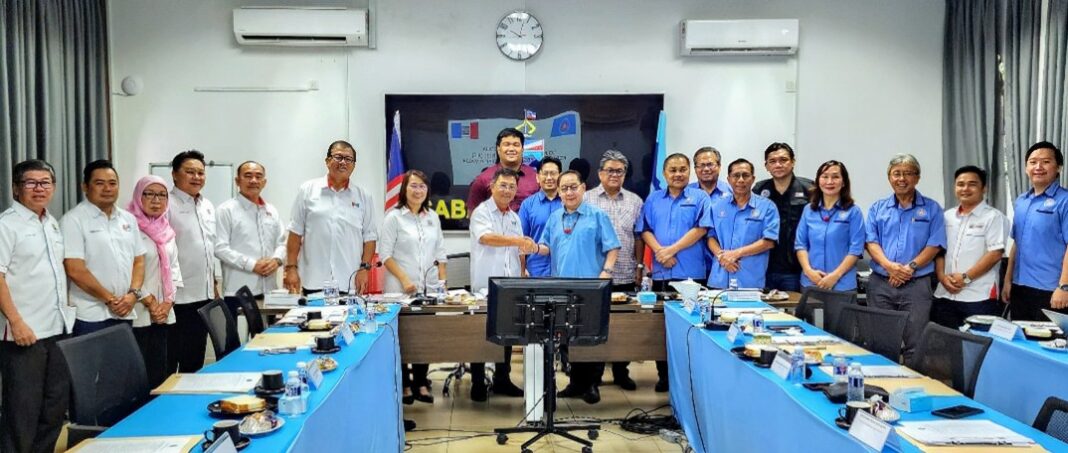By Professor Dr Hanudin Amin
Labuan Faculty of International Finance, Universiti Malaysia Sabah
THE concept of Madani—rooted in the ideals of a virtuous and civil society—offers an essential framework for reimagining work
behaviour in today’s evolving professional landscape.
Madani refers to attributes of a society that upholds ethical and civil values, promoting the betterment of its people through justice, equity, and mutual respect.
As such, this write-up introduced the concept of Madani work behaviour (MWB).
Drawing on Islamic teachings, this concept encourages employees to be conscientious, empathetic and committed to excellence while maintaining balance and fairness in their dealings with others.
Three issues are explained.
First, why MWB is essential in today’s workplaces?
Second, what are the five core principles of MWB?
Lastly, the protocols of MWB are also provided in this write-up.
As for the first question, workplaces today face increasing complexity due to globalisation, technological advancements, and shifting societal norms.
These challenges often lead to unethical practices, burnout, and a loss of purpose among employees.
For instance, the prioritisation of profit over employee well-being has resulted in high-stress levels, declining morale, and a lack of trust between employers and workers.
The adoption of MWB could address these concerns by emphasising ethical decision-making and fostering environments where employees feel valued and respected.
Its principles encourage collaboration, compassion, and accountability, reducing conflicts and creating a culture of trust.
Moreover, it aligns with sustainable development goals, as it seeks to balance economic growth with social justice and environmental stewardship
MWB is guided by five core principles namely accountability (Mas’uliyyah), justice (Adl), compassion (Rahmah), excellence (Ihsan) and balance (Tawazun).
The details are provided.
Accountability is a cornerstone of MWB.
Employees are encouraged to take ownership of their actions and decisions, understanding that they are answerable not only to their employers and colleagues but also to a higher ethical authority.
This principle seeds a sense of responsibility and ensures that individuals act with integrity, even in challenging circumstances;
Justice in the workplace involves fairness in resource allocation, opportunities, and treatment of employees.
A Madani work environment strives to eliminate discrimination, favouritism, and exploitation, creating a level playing field for all.
This approach fosters trust and loyalty among employees, enhancing organisational cohesion and productivity;
Compassion reflects empathy and care for others, particularly during difficult times.
In a Madani framework, leaders and employees alike are encouraged to support each other, recognising the human element behind professional roles.
This principle helps build strong interpersonal relationships and reduces workplace stress and alienation;
Excellence involves striving for the highest standards in one’s work, not merely to meet expectations but to exceed them as an act of devotion and service.
It aligns with the idea that work is a form of worship (ibadah), inspiring employees to bring their best selves to their roles; and
Maintaining a balance between work and personal life is essential in MWB.
Employees are encouraged to avoid extremes, ensuring that their professional responsibilities do not overshadow their personal well-being or societal obligations.
MWB can be implemented in all organisations including public universities to promote excellence not only in intellectuality but also in etiquette for blessing and harmony.
In this write-up, there are five protocols useful to implement MWB effectively.
These include ethical leadership, training and development, fairness policies, work-life balance policy and a sense of belonging culture.
The details are given.
Leaders play a pivotal role in modelling MWB.
By embodying traits such as humility, fairness, and accountability, they set the tone for an organisational culture grounded in ethical values.
Leaders can also implement policies that reward integrity and discourage unethical practices;
As for training and development, institutions should invest in training programmes that educate employees about the principles of MWB. Workshops on ethics, emotional intelligence, and interpersonal communication can empower employees to align their actions with these values;
Creating policies that promote inclusivity and fairness is essential for fostering a Madani work environment.
This includes equitable hiring practices, fair wages, and mechanisms to address grievances effectively;
Flexible working arrangements and wellness programmes can help employees achieve a healthier work-life balance.
Recognising the importance of family and community in an individual’s life aligns with Madani principles of balance and harmony; and
Employees who find meaning in their work are more likely to embrace Madani values.
Firms can create opportunities for employees to contribute to societal causes or participate in activities that align with their personal values.
Adopting MWB can lead to a range of benefits for both firms and persons.
For instance, an employee feels respected and valued through MWB, leading him to be motivated and engaged for higher levels of productivity and performance.
Another example is through MWB, one can include compassionate practices and work-life balance initiatives for better mental health and physical health for himself.
While the benefits of MWB are evident, implementing it may require overcoming certain challenges.
Resistance to change, especially in profit-driven environments, can hinder its adoption.
Additionally, cultural differences and varying interpretations of ethical principles may pose difficulties.
In response to these challenges, firms should adopt a phased approach, starting with small initiatives and gradually expanding them.
Engaging employees in the process and seeking their feedback can also help in tailoring the framework to suit diverse needs.
Clear communication about the benefits of MWB is crucial in gaining buy-in from all stakeholders.
All in all, MWB serves as a beacon of hope.
It reminds us that work is not just about achieving economic success but also about upholding our moral and spiritual responsibilities.
Let us seize this prospect to reinvent workplace culture and pave the path for a brighter, more inclusive future for our beautiful Malaysia.
Acknowledgement:
This write-up is funded by Islamic Economics Research and Innovation Fund (IERIF) 2024, INCEIF University, ISRA Research Management Centre (ISRARMC/IERIF/AWARD/2024/BATCH 1/63), Malaysia. Dr Imran Mehboob Shaikh, Assoc Prof Dr Dzuljastri Abdul Razak, Assoc Prof Dr Mohd Zulkifli Muhammad and Putera Aliif Al’ain Jasni are the members of the Research Gran
Editor: Editor: The views expressed are those of the writer and do not necessarily reflect those of talantang.com





